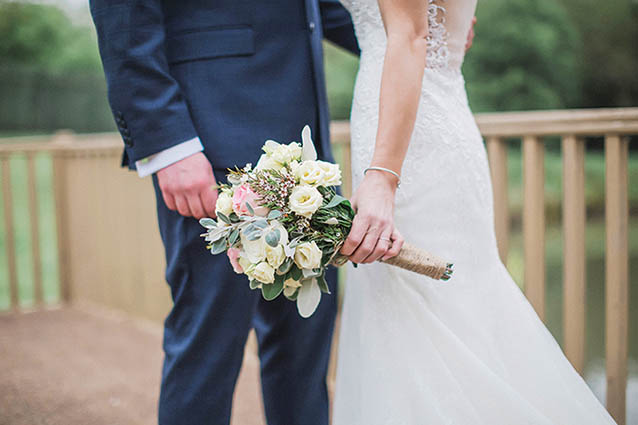Wedding planning is a unique experience unlike any endeavor most couples will ever encounter. Much effort goes into planning a wedding, and that includes building a budget that ensures the big day will be fun without breaking the bank.
Most couples planning a wedding have never tied the knot before, so it can be difficult to determine a reasonable amount to spend. It’s easy to go overboard when planning a wedding, and couples may find their list of wants and, consequently, their expenses, growing as they get into the weeds of wedding planning. Though it might require some difficult decisions, couples can keep these tips in mind so they can build a wedding budget that won’t land them in debt after saying, “I do.”
Determine funding. The days when a bride’s parents would finance the wedding entirely on their own are largely a thing of the past. According to a recent WeddingWire Newlywed Report, parents now pay for 52 percent of wedding expenses. As couples begin establishing a wedding budget, it’s imperative that they first determine who, if anyone, will be helping them finance the big day. Fifty-two percent of wedding expenses is a significant amount of money, but in that scenario, couples will still need to come up with roughly half of the money needed to fund their weddings. Couples without substantial savings may be forced to cut back in order to avoid beginning their life as a married couple in debt.
Make a list of potential expenses. Location will be a significant factor when determining potential expenses. For example, a 2022 ValuePenguin analysis of data from The Wedding Report found that the average wedding in Massachusetts cost roughly $30,500 in 2020, while couples tying the knot in Arkansas spent around $12,500 on their weddings. With such wild fluctuations, it’s important that couples get an accurate estimate of how much it may cost them to get married in a given city. Couples who met in a city and still live in a city but grew up in a suburb might save a considerable sum by getting married in their hometowns. Compare and contrast prices in locales you’re considering, and then build your budget accordingly. This can help you avoid sticker shock and going over budget. Notable expenses to budget include the venue, attire (i.e., wedding dress and tuxedo rental), hairstyle and makeup, entertainment, photography, and transportation, among others.
Make a list of what’s most important. Most couples will have to compromise in order to avoid taking on debt to finance their weddings. An earnest discussion about what’s most important to each person can ensure you both get what you want. Each person can make a list of their priorities, ranking them from most important to least important. Once lists are shared, couples can see where their priorities converge and where they diverge. Any items that rank low on each person’s list of priorities can be afforded less funding, while those that are high on each list can take up more of the budget, if necessary.
Commit to a limit before spending a dime. Committing to a limit before spending a dime can help couples keep wedding costs more manageable. Once that number is defined, couples can then work within its parameters, which can make potentially difficult decisions a little easier by narrowing options at a time when options can seem endless.
A well-planned budget can be just what couples need to begin married life on strong financial footing.




